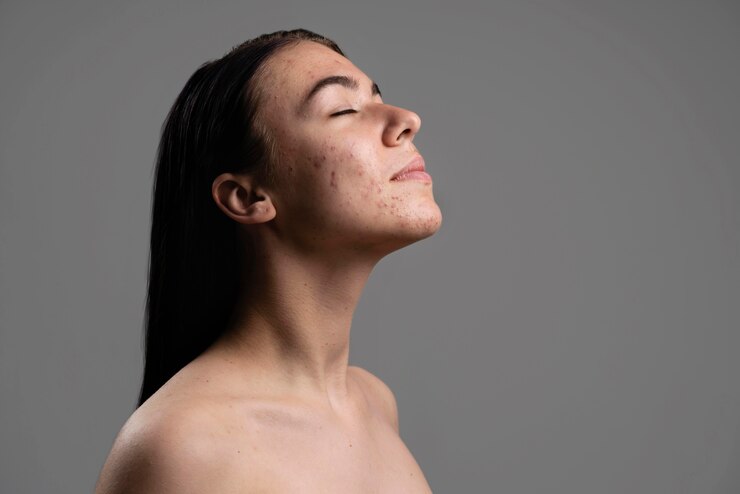Hyperpigmentation treatment

Hyperpigmentation refers to darkened skin caused by excess melanin production, and it can appear as age spots, sun spots, or melasma. Treatment typically involves a combination of topical treatments, lifestyle changes, and sometimes procedures. Here are some common treatments for hyperpigmentation:
1. Topical Treatments:
Hydroquinone: Often considered the gold standard, hydroquinone lightens skin by inhibiting melanin production. It is available in both over-the-counter and prescription formulas.
Retinoids (Retinol or Tretinoin): Retinoids help speed up cell turnover, which can fade dark spots over time. These are available in both prescription (tretinoin) and over-the-counter (retinol) forms.
Vitamin C: Known for its brightening effects, vitamin C is an antioxidant that can lighten dark spots by inhibiting melanin production. It’s commonly found in serums or creams.
Niacinamide (Vitamin B3): Niacinamide is an anti-inflammatory ingredient that can reduce the appearance of dark spots and even out skin tone.
Alpha Arbutin: This is a plant-derived ingredient that helps to lighten dark spots and is considered a gentler alternative to hydroquinone.
Azelaic Acid: This is effective for treating both acne and hyperpigmentation. It has anti-inflammatory properties and helps lighten spots.
Kojic Acid: A skin-brightening agent that inhibits melanin production, kojic acid is commonly found in serums and creams.
Licorice Extract: Known for its brightening effects, it can reduce pigmentation and inflammation.
2. Chemical Peels:
AHA (Alpha Hydroxy Acids) Peels: Glycolic acid is commonly used to exfoliate the skin, which helps to fade dark spots.
BHA (Beta Hydroxy Acid) Peels: Salicylic acid is effective for those with acne-prone skin and can also target pigmentation issues.
TCA (Trichloroacetic Acid) Peels: Stronger peels that are often performed in a dermatologist’s office, targeting deeper layers of skin to treat stubborn pigmentation.
3. Laser Treatments:
Fractional Laser: Targets the pigmentation deep within the skin to break up the pigment and promote skin regeneration.
Q-switched Nd:YAG Laser: This laser is effective for targeting melanin and can reduce dark spots.
IPL (Intense Pulsed Light): This treatment uses light to target and break down pigmented cells in the skin.
4. Sun Protection:
Sunscreen: Consistent use of broad-spectrum sunscreen with an SPF of 30 or higher is essential. UV exposure can worsen existing hyperpigmentation and make new dark spots form.
Sun avoidance: Protective clothing and seeking shade, especially during peak sunlight hours (10 AM to 4 PM), can help prevent further pigmentation.
5. Lifestyle Adjustments:
Avoid Picking at Skin: Avoid picking, popping, or irritating spots, as this can cause post-inflammatory hyperpigmentation.
Diet and Hydration: A healthy diet rich in antioxidants (e.g., vitamins C and E) and staying hydrated can support skin health.
6. Natural Remedies (Use Cautiously):
Aloe Vera: Known for its soothing properties, aloe vera may help lighten pigmentation over time.
Lemon Juice: Known for its bleaching properties, lemon juice should be used cautiously, as it can irritate the skin and increase sensitivity to sunlight.
Turmeric: Contains curcumin, which has anti-inflammatory properties and may help lighten skin over time.
7. Professional Consultation:
- Dermatologist Consultation: If over-the-counter treatments are ineffective, a dermatologist can recommend prescription products, stronger chemical peels, or laser treatments tailored to your skin type and pigmentation concerns.
